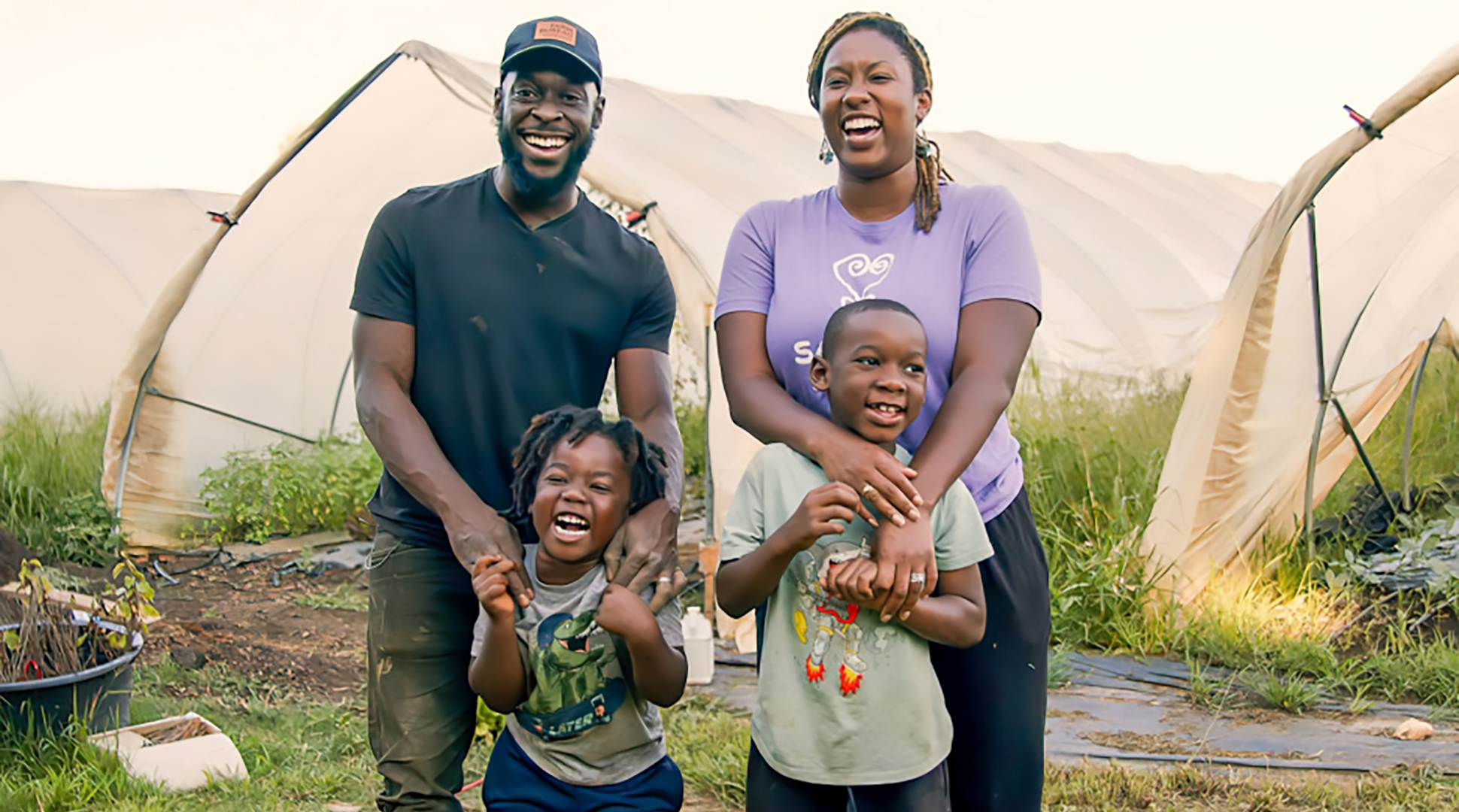As Americans’ ties to food production grow further removed with each generation, North Carolina farmer Kamal Bell encourages everyone to make a connection – however small – with farming and engage as the stakeholders we are in the food system.
Spurred to start farming when he learned about food deserts in college, Kamal and his wife, Amber, run Sankofa Farms in Cedar Grove, North Carolina.
“I just set out on a path to grow food and our mission here is to get it to people who are affected by food deserts,” he explained.
Along with conservation and protecting the land, air and water around the farm, Bell is focused on fostering the farm-to-fork connection in youth.
As an agricultural education teacher, Bell noticed how students’ behavior – at school and at home – improved, as did their grades, when they became involved in the school garden he created.
Now, he provides experiences like that on his farm.
Mikal Ali, a Sankofa Farms student, was surprised by how much needed to be done to transform the tree-covered land into a farm.
“It was a blessing in disguise because I saw what it was like to work for something,” Ali said, adding that Bell provided the opportunity to learn, but it was the students’ responsibility to take it.
Without the youth being involved in agriculture, “we can’t ensure farming is going to look the way we want it to look,” Bell cautioned, encouraging other farmers to provide similar experiences to young people.
According to Bell, honeybees are the perfect example of the aspects of farming he’s most committed to: exposing youth to agriculture and incorporating environmental sustainability practices.
“Honeybees, one, are great pollinators. They’re also a great introduction to bringing youth [to the farm] and educating youth about farming. The more interested we can get them, the more of a chance that they actually come into the industry to fulfill a role or to push the industry forward,” Bell said.
